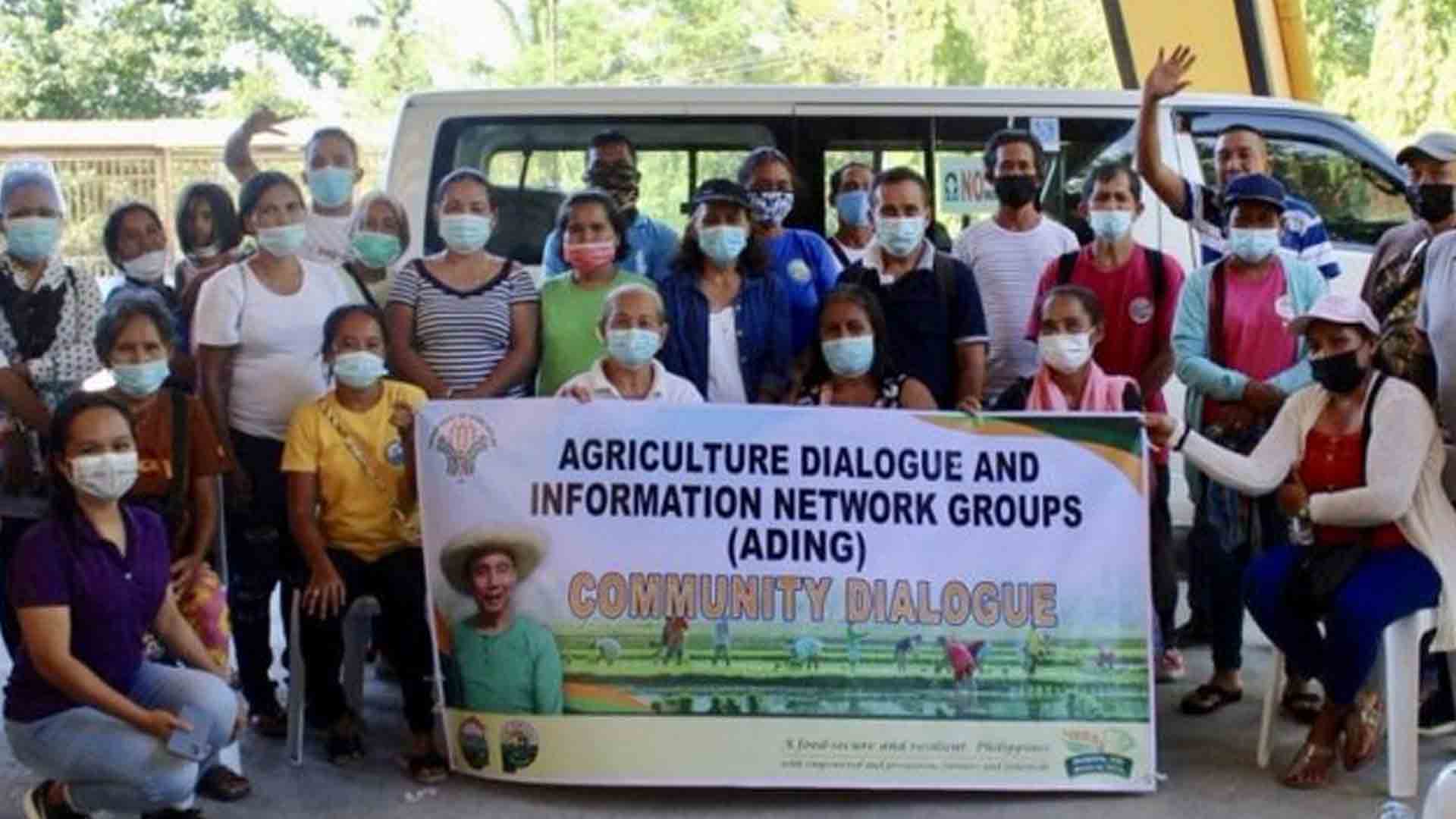Every farmer has his or her own best farming practices that need to be disclosed so that other farmers may learn and adopt them.
One good example is the best practice of the free-range chicken farmers in Tabuelan town in northern Cebu which is said to be the result of their perseverance, determination, and initiatives based on actual experiences, struggles and challenges encountered.
This was the significant finding by members of the Integrity Circle (IC) of the Department of Agriculture-Central Visayas (DA-7) Agriculture Dialogue and Information Network Group (ADING).
The IC members who are private volunteers uncovered this practice during their project monitoring of the free range chicken module project in the fourth-class municipality.
Some farmer-beneficiaries of this free-range project have successfully grown, doubled, and even tripled the number of chicks they received from the project, which, to the group is a pleasant surprise.
These free range chicken modules, funded under the DA’s Ahon Lahat Pagkain Sapat Kontra Covid-19 (ALPAS Covid-19) of the Bayanihan 1, were distributed to 20 farmer associations in the said town.
For this project, a total of 1,200 heads of free range chicks of dominant CZ breed and 40 bags of feeds were distributed, giving each association 60 heads and two bags of feeds for dispersal to the members.
Each member received 12 heads. The members would return the same number of chickens received which are to be dispersed to other members in the waitlist.
Best practice
One successful project-recipient, Resca Pugio of the Nagkahiusang Mag-uuma sa Tabunok (NAGMATA), who now has more than 50 offspring from the existing nine heads (five females and four males), shared that she was very happy to be one of the lucky members of their association to avail of the project.
The chickens, she said, have engrossed her family to have more of such breed.
“We observed that the chickens are good egg layers, however they don’t brood their eggs, resulting to spoilage. What we did since we have native hens that are laying eggs, we get all the native eggs and replace it with the eggs of the CZ. We found out that the native hen will brood the eggs until they hatched. I was able to produce more offspring,” Pugio was quoted as saying in Cebuano in a statement released by DA-7 on Friday.
Her son also narrated that their brooding nest has three layers composed of straw, sacks and cloth which they usually replace from time to time to avoid the eggs from getting wet that will result in spoilage.
Pugio’s practice of letting the native hens brood the CZ eggs was adopted by other group recipients such as the Bongon Farmers Association of Tabuelan (BOFAT) and the Villahermosa Planting Group Farmers Association (VPGFA), that also claimed to be successful, using the same technique.
Farmers who happened to be not-so-lucky in producing chicks made them a good source of food.
Evelyn Pable, a project recipient of Canaan Bongon Farmers Association (CBFA), said the eggs give them additional source of income, and being their source of food, especially during the time when they don’t have the technique yet on how to brood their eggs.
“We observe that the hen does not brood the eggs, and so they were spoiled. The next laying, we get the eggs for home consumption. The eggs are delicious, but we will really multiply these chickens because they have nice breeds using the technique shared by other farmers,” she relayed.
While they have been successful applying the same technique, other recipients are still experiencing the challenge of hatching their CZ eggs.
Community dialogue
During the conduct of community dialogues, many became aware of the other farmers’ practices. They were surprised to learn about the technique and many have committed to try the considered best practice in hatching the CZ eggs.
This was one of the significant disclosures facilitated through the community dialogue of the ADING IC group, making known the unknown, and sharing the best practices for a common good. (PNA)







